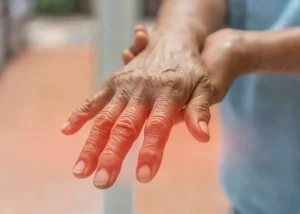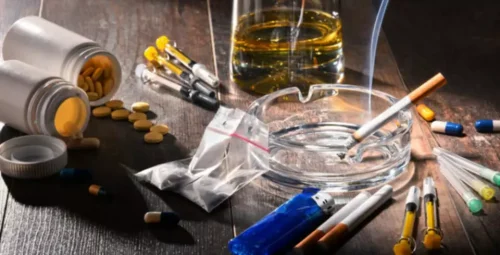
Binge drinking—consuming four drinks for women or five for men in a two-hour span—is even more damaging than when the same number is spread out over the week. Alcohol has been shown to negatively impact the skin in a number of ways and create undesirable short-term side effects that, with time, can develop into more problematic concerns. Along with urticaria (see above), patients may develop low blood pressure, diarrhoea, shortness of breath, and low heart rate (anaphylaxis). Even tiny amounts of alcohol may induce urticaria in people who have had a severe reaction previously, although allergy testing is often negative.
Caught in the Crosshairs of American Healthcare by Lloyd Sederer, M.D.

Fine lines and pores are less visible, and your skin appears plumper and healthier. However, some effects of chronic, excessive alcohol use on the skin may not disappear so quickly; for example, deep lines and wrinkles caused by chronic how alcohol affects your skin dehydration might soften, but are likely to remain. If you are a heavy drinker, your alcohol use will soon affect your skin health. Excessive alcohol use accelerates the aging process in your skin and decreases your overall skin health.
Beauty Products With Results So Great, You’ll Be Stunned Into Silence

In the long term, you’ll see a youthful, healthy glow return to your face. It’s important to note that you can’t completely avoid the impact that drinking has on your skin. But if you choose to drink, reducing your intake, picking the right type of alcohol, and drinking plenty of water are the best places to start. So, if you’re worried about your skin, avoid cocktails as much as you can. Steering clear of these drinks can help reduce some of the negative side effects that drinking has on your skin. Drinking alcohol may make you more likely to develop certain skin conditions, such as psoriasis, rosacea, and seborrhoeic or nummular dermatitis.
RECOVERY PODCAST

‘Dehydration weakens the skin barrier, which can allow environmental aggressors to cause damage’, Dr Hextall clarifies. Given the connection between liver function and skin health, address any liver issues. Abstaining from alcohol is the primary step, but medical https://ecosoberhouse.com/ treatment and lifestyle changes may also be necessary for liver recovery. Regular exercise, adequate sleep, and stress management are factors that can positively impact skin health. A healthy diet and regular exercise are essential for maintaining healthy skin.

When skin becomes too dry, it is more likely to wrinkle, and can make you appear older than you actually are. Chronic misuse can lead to conditions such as rosacea, psoriasis and acne, and more serious health concerns such as skin cancer. This can manifest as visible dehydration, as alcohol saps your skin of fluid.
What happens to your skin when you stop drinking alcohol?
This paper reviews recent progress in research investigating the relationship between alcohol consumption and several common skin diseases, including acne, rosacea, psoriasis, atopic dermatitis, and skin tumors. Heavy drinking reduces options for treatment of psoriasis, as some medicines are contraindicated if the drinking has led to liver disease (methotrexate) or to high levels of triglyceride (acitretin). Patients with psoriasis and high alcohol intake are also more likely to suffer from depression. You might notice dandruff on your scalp or itchy patches of greasy skin on other body parts. Doctors call this skin disease seborrheic dermatitis, and it’s often a sign of immune system problems or a yeast in the body.
How Alcohol Causes Premature Aging and Wrinkles
- Your doctor can help by slowly getting you used to aspirin, which should ease your symptoms.
- “People may feel like their skin gets oilier after a night of binge drinking or notice that they tend to have oilier skin as a result of long-term drinking,” Soleymani said.
- Additionally, alcohol has been shown to increase inflammation in the body.
- If you have rosacea, you’ll no longer have flare-ups caused by drinking.
- If you’re able to quit or reduce your alcohol consumption while you’re in your 20s, your skin in your 30s, 40s and beyond will thank you.
And although your favorite champagne may taste light, it likely contains a significant amount of sugar. These conditions don’t have a cure, but treatment can help make symptoms more manageable and have less of an effect on your appearance. However, these conditions can also develop in people who don’t drink at all (5). Antioxidants play an important role, Dr. Chang says, especially in removing free radicals and protecting skin from damage.
- Over time, overuse increases the chance of high blood pressure, strokes, liver diseases and cancer.
- Both conditions cause inflammation and irritation of the skin, and alcohol can further irritate the skin and make symptoms worse.
- Once all the alcohol has been eliminated from your system, you will no longer be dehydrated, you will be well-rested and short-term symptoms such as dark circles should fade away.
- With lower levels, your skin is more prone to sagging and wrinkling, aging your appearance.
- By staying hydrated, using the right skincare products, and moderating alcohol consumption, you can protect your skin from the adverse effects of alcohol.
- “Serums and face masks that contain antioxidants, like vitamin C, green tea, and niacinamide, can help calm the skin the day after a long night out.”
- Cocktails taste great in part due to their a high sugar content, which does your face no favours.
- When you’re ready to get started, simply fill out our online scheduling request form, and one of our team members will be in touch to finalize the details of your visit.
- Chronic misuse can lead to conditions such as rosacea, psoriasis and acne, and more serious health concerns such as skin cancer.
“Alcohol is actually one of the worst, most aggressive compounds to destroy your skin,” says New York nutritionist Jairo Rodriguez, who counts designers and Vogue editors among his clients. “I always joke with my patients, ‘If you want to get older, go ahead and drink! ’” Here, Rodriguez breaks down the exact effects of alcohol on the skin, as well as the benefits of giving up alcohol or imbibing more tactfully. Drinking alcohol is linked to cancer of the mouth, throat, voice box, and esophagus. Research shows alcohol use also may be tied to the most common types of skin cancer.
- And these killer hangovers can amplify the parched, red, and puffy skin that you’re used to seeing after a night out.
- For women, it’s defined as three drinks a day or more than seven drinks a week (1).
- Patients with psoriasis and high alcohol intake are also more likely to suffer from depression.
- Signs of dehydration include dark circles beneath the eyes, puffiness, and dry skin.
- With holiday celebrations right around the corner, you may be looking forward to enjoying a few more cocktails than usual at holiday parties and gatherings with friends and family.